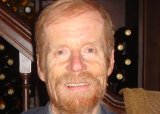 In Ramallah in January, the talk is only of delight over the much needed heavy rain, even though it comes with biting cold and a strong mountain wind. For British visitors leaving the warmest autumn in decades it is a shock and in the auditorium for the graduation even the speakers wore overcoat and gloves. The Royal College of Paediatrics and Child Health delegation, accompanying the president professor Terence Stephenson for the ceremony to confer certificates for the diploma in Palestinian child health, shivered, but the warm welcome together with the presence of British government and WHO representatives and the University President at the graduation, made up for the cold outside. This is the third graduation to be attended by the President and each speaker, together with the students themselves, expressed their deep appreciation for the work of the College over the past decade in bringing the course to fruition. Now the work continues as the ownership of the teaching is handed over to the Palestinians themselves.
In Ramallah in January, the talk is only of delight over the much needed heavy rain, even though it comes with biting cold and a strong mountain wind. For British visitors leaving the warmest autumn in decades it is a shock and in the auditorium for the graduation even the speakers wore overcoat and gloves. The Royal College of Paediatrics and Child Health delegation, accompanying the president professor Terence Stephenson for the ceremony to confer certificates for the diploma in Palestinian child health, shivered, but the warm welcome together with the presence of British government and WHO representatives and the University President at the graduation, made up for the cold outside. This is the third graduation to be attended by the President and each speaker, together with the students themselves, expressed their deep appreciation for the work of the College over the past decade in bringing the course to fruition. Now the work continues as the ownership of the teaching is handed over to the Palestinians themselves.
During the visit, as always the reality of the situation for the Palestinians makes itself felt. It is the chance encounters that make it so different from travelling in any other part of the world. Our taxi driver in Ramallah showed us his photograph on the day of his release from jail after participating in a peaceful protest over the encroaching wall in his home village. Look me up on YouTube, he said–and indeed we did, and found a remarkable record of the march and his own courageous stance–check it out under Adeeb Abu Rahma.
On the next day, the short trip from Ramallah to Abu Dis in East Jerusalem for the graduation (14 kms as the crow flies) took nearly an hour owing to the circuitous route to avoid passing through the barrier in Jerusalem. In the centre of Ramallah in Menara Square, there is a huge chair–symbolically representing the seat at the UN which the Palestinians hope to take up when a vote eventually takes place in the Security council.
The big news when we meet with the Palestinian paediatricians (partners in our teaching programme) is their recent visit to the refugee camps in Lebanon, where thousands of Palestinians live in appalling conditions–the worst of the camps in any of the surrounding countries. There, the medical services run by UNRWA and the Palestinian Red Crescent suffer from isolation, lack of outside support, and no ongoing education so that outdated practices and mis-use of drugs are common (for example, we were told of the use of sodium valproate for febrile convulsions). Their suggestion is to take the RCPCH Palestinian course to the camps.
Every visit brings new challenges. Up to now, the RCPCH has responded with vision and determination and we expect this to continue–even after the Palestinian chair at the UN is eventually occupied by the representative of an independent state.
